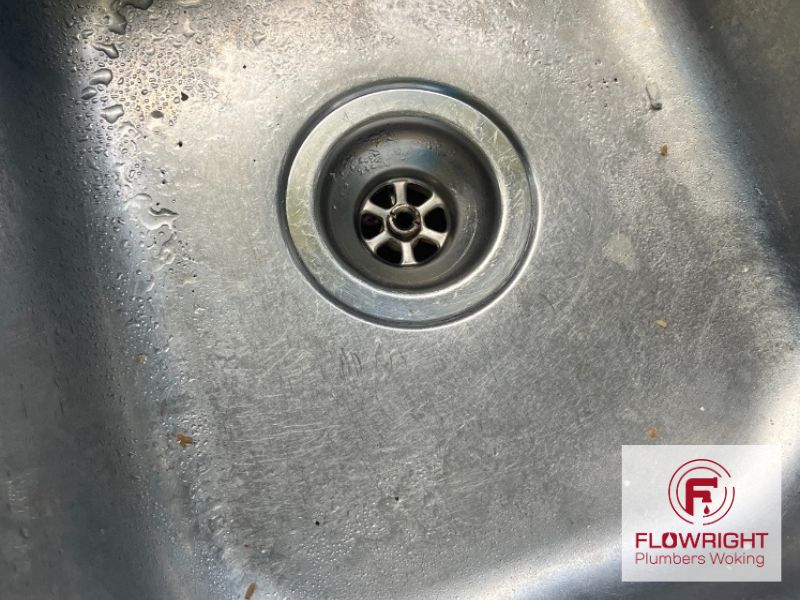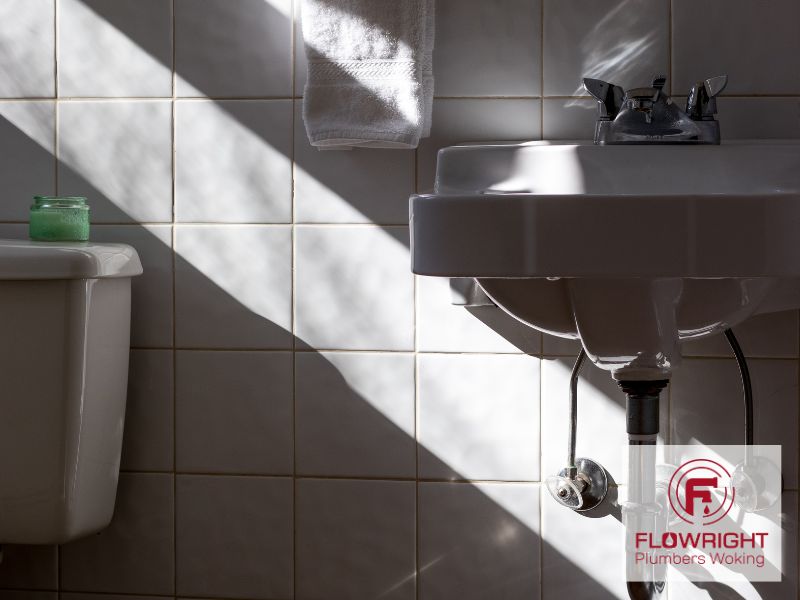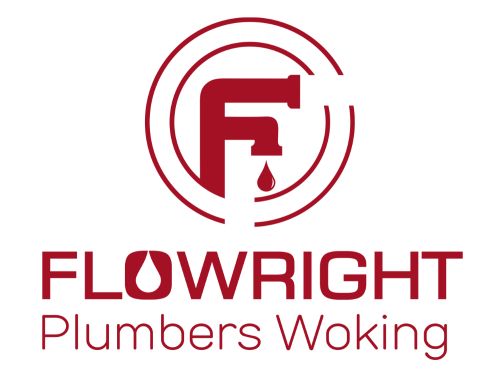Tired of your plumbing system causing trouble in your home? Take control and ensure long-term efficiency for your plumbing.
Imagine a smoothly flowing river, unhampered by any blockages. With proper maintenance, that efficiency can be yours. Here we provide essential preventive measures that will help keep your pipes in great condition, allowing for smooth water flow and avoiding costly repairs.
Regular inspections and maintenance are essential for spotting potential problems before they worsen. Keeping an eye on your plumbing system can help you detect leaks, clogs, or corrosion early and tackle them quickly.
Practising proper water usage is also vital for keeping your pipes working for longer. Conserving water helps the environment and reduces strain on your plumbing system.
Winterisation is also a must for plumbing maintenance in the UK. When temperatures drop, insulate your pipes to protect them from freezing and bursting.
Understanding your plumbing system is key for successful maintenance. Lastly, if you are unsure about a specific issue, don’t be afraid to get professional help.
By following these preventive measures and performing regular maintenance, you can enjoy hassle-free plumbing for years. Let’s look into these tips and serve yourself and others better!
Regular Inspections and Maintenance
Regular inspections and maintenance are essential to ensure the long-term efficiency of your plumbing system, so do not neglect them. Regular maintenance helps prevent costly repairs and ensures that everything is functioning optimally.
This includes tasks such as checking for leaks, inspecting pipes and drains, and cleaning fixtures. It is also important to schedule professional inspections periodically to identify any potential issues before they escalate. These inspections involve a comprehensive examination of your entire plumbing system by a trained professional who can identify hidden leaks or signs of wear and tear that may not be immediately visible.
By addressing small problems early on through regular maintenance and professional inspections, you can avoid more significant issues in the future and prolong the lifespan of your plumbing system. Do not underestimate the importance of regular care in keeping your plumbing system running effectively in the long run.
Proper Water Usage
To ensure appropriate water usage in daily activities, it is essential to adhere to several important points.
- Do not flush non-biodegradable items as they can lead to blockages and damage to the plumbing system.
- Opt for water-saving fixtures and appliances, like low-flow toilets and showerheads, to efficiently conserve water.
- Stay conscious of your water consumption during everyday tasks such as dishwashing and laundry. Even small changes in behaviour can make a significant impact on long-term efficiency.
Avoid disposing of non-biodegradable items by flushing them down the toilet.
Remember, when it comes to your plumbing, don’t let non-biodegradable items go down the drain. They act as stubborn boulders, clogging up the river of water flow.
To keep a well-functioning plumbing system and ward off potential blockages, it’s essential to avoid flushing non-biodegradable waste. These items include sanitary products, baby wipes, cotton buds, and dental floss. Non-biodegradable waste doesn’t break down quickly and can build up in your pipes over time, causing blockages and decreasing water flow efficiency. This can result in costly repairs as well as adverse environmental effects.
Alternatives such as biodegradable toilet paper or reusable cloth wipes can be used instead of non-biodegradable items. By being mindful of what you flush down the toilet or drain, you can help keep your plumbing system in good condition and reduce your ecological footprint.
Use water-saving fixtures and appliances
Using water-saving fixtures and appliances can have a significant impact on reducing your water consumption and saving money on utility bills. Here are some techniques to consider:
- Install low-flow showerheads: These fixtures limit the flow of water without affecting the pressure, allowing you to enjoy a shower while conserving water.
- Upgrade to dual-flush toilets: These eco-friendly fixtures have two flushing options, one for liquid waste and another for solid waste. By using the appropriate flush, you can minimize unnecessary water usage.
- Invest in efficient washing machines and dishwashers: Look for models with high energy efficiency ratings and water-saving features. These appliances use less water during each cycle, helping you achieve cleaner clothes or dishes while reducing overall water consumption.
By implementing these measures, you can contribute to conserving our water resources while enjoying the benefits of lower utility bills.
Be mindful of water usage in daily activities
Mindfully consider the water you use in your everyday activities, imagining each droplet as a valuable resource that can be preserved through small changes in habits. Water conservation is vital for maintaining an environmentally friendly lifestyle and ensuring the long-term effectiveness of your plumbing system.
Begin by being mindful of how much water you use while brushing your teeth or washing dishes, and turn off the tap when not needed. Opt for shorter showers and consider installing low-flow showerheads to reduce water consumption without compromising on comfort.
Furthermore, promptly repair any leaks to prevent unnecessary waste. When doing laundry or using appliances, be sure to run full loads to maximize efficiency.
By adopting these simple yet effective eco-friendly habits, you can help conserve water and promote sustainability in your daily life.
Winterisation
To ensure your plumbing system is prepared for winter, it is important to insulate any exposed pipes. This will prevent them from freezing and potentially bursting.
Disconnect and drain outdoor hoses to prevent water from freezing and causing damage.
Seal any openings and cracks in the exterior of your home to prevent drafts that may lead to frozen pipes.
By taking these preventative measures, you can ensure the long-term effectiveness of your plumbing system during the winter months.
Insulate pipes that are not covered
Insulating exposed pipes can help to keep them warm and shielded from the cold, ensuring that they last longer and function efficiently. There are several advantages to pipe insulation, including the prevention of freezing, the reduction of condensation, and the minimization of heat loss.
There are various types of insulation materials available, but foam pipe insulation is commonly used for this purpose. It creates a barrier between the pipe and the surrounding air, providing excellent protection against temperature changes. It is also easy to install and can be cut to fit pipes of any size.
Another option is fiberglass pipe wrap, which can be used to insulate both hot and cold water pipes. It offers good resistance to heat transfer and helps to maintain the temperature of the water.
Self-sealing rubber tape can also be wrapped around exposed pipes. This type of insulation creates a tight seal, protecting against moisture and air infiltration.
By insulating pipes with these materials, it is possible to prevent costly repairs due to frozen or burst pipes and ensure optimal performance during the winter months.
Disconnect and drain outdoor hoses
Disconnecting and draining outdoor hoses is essential to protect them from freezing temperatures and potential damage during the winter months. To prevent freezing, make sure you turn off the water supply to the outdoor tap and disconnect any hoses attached to it.
Here are some steps to follow:
- Shut off the water supply: Locate the shut-off valve for your outdoor tap and turn it off. This will prevent water from flowing into the hose, preventing freezing and potential damage.
- Remove debris: Before disconnecting the hose, make sure to remove any dirt or debris that may have accumulated on it. This will help prevent clogs and ensure proper drainage.
- Drain the hose: Once disconnected, hold one end of the hose up high while walking towards the other end. This will allow any remaining water in the hose to drain out completely.
By following these steps, you can prevent freezing and prolong the lifespan of your outdoor hoses, so they’re ready for use when warmer weather returns.
Seal gaps and cracks to prevent draughts.
Sealing gaps and cracks is an effective way to keep your home warm during the winter months. Drafts can be avoided, allowing for a pleasant indoor temperature while reducing energy consumption.
Begin by searching for any visible gaps or cracks in your walls, windows, and doors. Once you have identified them, find a sealant that is best suited to your needs and apply it using a caulking gun or putty knife. Be particularly careful when applying the sealant to areas where different materials meet, such as corners and edges.
Additionally, check for gaps around pipes and wires that come from the outside. Properly applying sealant will improve energy efficiency, prevent moisture from entering, and safeguard the structure of your home.
Know Your Plumbing System
To ensure the efficient functioning of your plumbing system, it is important to have knowledge of certain crucial details.
Begin by locating and labelling each shut-off valve in your house, enabling you to swiftly shut off the water in case of an emergency or repair.
Furthermore, acquaint yourself with the usage and maintenance of your water heaters in order to optimize their performance and prolong their lifespan.
Lastly, familiarize yourself with the main water line on your property to gain a better understanding of how water flows and to easily identify any potential issues.
Locate and label shut-off valves.
One important step in plumbing maintenance is finding and labelling shut-off valves. It is essential to know where these valves are located in order to respond quickly and effectively to any plumbing emergency.
To prevent further damage and minimize the impact of leaks or bursts, it is important to familiarize yourself with the main shut-off valve, as well as individual shut-off valves for sinks, toilets, showers, and appliances like dishwashers or washing machines.
It is recommended to use waterproof labels or tags with clear indications of which fixture or area each valve controls. This can save valuable time during emergencies and make it easier for anyone in your household or even professionals to quickly locate and operate the necessary shut-off valve.
Understand how to use and maintain water heaters.
Now that you have located and labelled the shut-off valves, it is time to understand how to use and maintain water heaters. Water heaters are an essential part of plumbing systems, providing hot water for various activities. However, they can encounter issues over time, resulting in inefficiency or even complete failure.
To ensure long-term efficiency, it is crucial to quickly troubleshoot common water heater problems. Here are some common issues you may experience:
- Lack of hot water: This could be caused by a faulty heating element or a tripped circuit breaker.
- Insufficient hot water supply: Sediment buildup in the tank or a malfunctioning thermostat can cause this.
- Leaks: Leaks can occur from loose connections or a damaged pressure relief valve.
Regular maintenance and inspections will help identify these issues early, ensuring your water heater operates at its optimal performance and reliably serves you for years.
Get to know the primary water supply line.
Understanding the importance of familiarising yourself with the main water line can ensure a smooth and efficient plumbing system in your home. Regularly inspecting the main water line is essential to detect any potential issues before they become costly repairs.
Find the main shut-off valve, typically near the water meter or where the main service line enters your home. Ensure it’s easily accessible in case of emergencies. Examine the pipe for signs of leaks, corrosion, or damage. If you spot any irregularities, it’s advisable to contact a professional plumber for further evaluation and necessary repairs.
Also, be aware of common plumbing issues such as low water pressure or discoloured water, as these may point to problems with your main water line that need quick attention.
By staying alert and proactive, you can maintain a well-functioning plumbing system for years to come.
Professional Help
Seeking skilled assistance ensures a seamless and swift solution to your plumbing predicaments. In emergency situations or complex situations, relying on professional help is essential. Here’s why you should consider hiring a professional plumber:
- Expertise: Professional plumbers possess comprehensive knowledge and experience in addressing different plumbing issues. They can quickly diagnose the issue and provide the most practical solution.
- Time-saving: By hiring professionals, you can save yourself time and effort that would have otherwise gone into DIY troubleshooting. Plumbers have the essential tools and equipment to handle tasks effectively.
- Long-term cost savings: Professionals not only fix the current problem but also identify any potential issues that could cause future problems. This preventive approach assists in avoiding pricey repairs in the future.
- Safety: Plumbing systems involve intricate networks of pipes, valves, and fixtures. Attempting DIY repairs without proper training can lead to accidents or further damage.
By entrusting your plumbing maintenance needs to professionals, you can guarantee a dependable and long-lasting solution for your home or business.
Frequently Asked Questions
How frequently should I have my plumbing system inspected and maintained?
To ensure the durability of your plumbing system, it is advised that you have it checked and serviced regularly. The frequency of inspections may vary depending on factors such as the age of your system and how often it is used. Generally, it is recommended to have an inspection once a year. However, if you notice any signs such as water leaks, slow drains, or unusual noises, it is important to address them immediately to prevent further problems and expensive repairs.
What are some common mistakes people make with water usage that can lead to plumbing issues?
Common mistakes in water usage can lead to plumbing issues. To conserve water and prevent problems, it is important to turn off taps when not in use and to use sensible amounts of water for tasks such as washing dishes or doing laundry.
Pay attention to any possible leaks and fix them quickly to prevent further damage. Additionally, it is essential to avoid flushing anything that could cause clogs or blockages down the toilet.
Practising water conservation techniques can help keep plumbing systems running efficiently.
How can I properly winterise my plumbing system to prevent freezing and bursting pipes?
To prevent your pipes from freezing and bursting, winterise your plumbing system. Insulate any exposed pipes with foam sleeves or heat tape. Disconnect and drain outdoor hoses, and shut off exterior water sources. Keep your home heated above freezing temperature and open cupboard doors to allow warm air circulation around the pipes.
Taking these precautions will ensure a functioning plumbing system throughout the cold winter months.
What are some signs that indicate a problem with my plumbing system that I should be aware of?
Common plumbing issues vary from dripping taps to blocked drains. To identify plumbing leaks, look out for water marks on walls or ceilings, unexpected rises in water bills, and the sound of running water when no fixtures are in use.
Regularly examine your pipes for any indications of corrosion or rust. Taking prompt action to resolve these problems will aid in preventing additional damage and maintaining the proper functioning of your plumbing system.
When should I contact a professional plumber to assist with my plumbing problems?
If you notice signs of a badly done DIY plumbing job, such as leaks, clogs, or low water pressure, it is the right time to contact a professional plumber. Avoid causing more damage by refraining from trying to fix it yourself.
To choose the most suitable plumber for the task, search for valid licensing and insurance, ask for recommendations from reliable sources, and inquire about their experience in dealing with similar issues. A skilled plumber will ensure that your plumbing problems are resolved promptly and efficiently.










